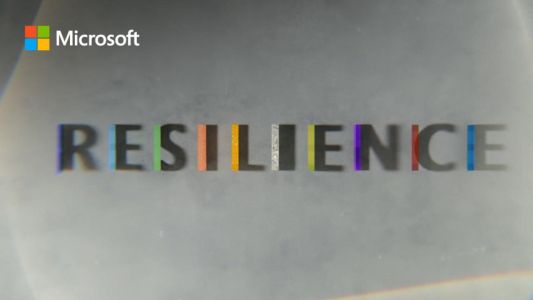Únase a getAbstract para acceder al resumen.

Únase a getAbstract para acceder al resumen.
Microsoft | Societal Resilience
Innovating to Understand and Act
Resilience – Episode 1
Microsoft, 2021
¿De qué se trata?
Innovation won’t save humanity, but it will help build resilience.
Recommendation
As part of Microsoft’s “Societal Resilience” series, “Innovating to Understand and Act” examines how specialists across the globe worked together to tackle the 2020 COVID-19 pandemic. With unprecedented speed and focus, and with a multidisciplinary approach, experts from around the world collaborated with Microsoft to produce cutting-edge solutions to this complex crisis. Astrophysicists, aerodynamics specialists, health metrics analysts and neuroscientists all contributed unique ways to solve a novel problem. While challenges remain, they model how cooperation is pivotal to human resilience.
Take-Aways
- In 2020, scientific experts had to cooperate to face an extraordinary challenge: a global pandemic.
- The pandemic demanded a coordinated, multidisciplinary approach.
- The Antigen Map Project will change the “way we do health care.”
Summary
In 2020, world experts had to cooperate to face an extraordinary challenge: a global pandemic.
In times of crisis, science and technology “fuel discovery” and “magnify ingenuity” to help humanity become more resilient. For instance, when the novel coronavirus – SARS-CoV-2, the pathogen that causes COVID-19 – appeared in early 2020, Microsoft and its partners had to grasp and assess the data. Once people can understand a problem, they can overcome their fear and anxiety and work on solving it.
“Times of crisis push us to innovate, to adapt and evolve. How we respond today will shape our tomorrow.”
From the beginning, the Microsoft Research Outreach team knew they had to understand the virus at “the molecular and societal level.” At the University of Washington’s Department of Health Metrics Sciences, academics used data from hard-hit Northern Italy and worked with Microsoft’s AI For Good Research Lab to anticipate a potential surge. They built a “transmission dynamics” model to predict transmission. The challenge was to find consensus among different models and eliminate noise to glean meaningful information and create guidelines.
The pandemic demanded a coordinated, multidisciplinary approach.
Due to its complexity and the fact that it was a global phenomenon, the pandemic drew many disciplines into its study. For instance, aerodynamics experts conducted simulations to measure optimal social distancing, particularly when people were moving. Understanding the urgency, they published preliminary guidelines within weeks.
“The urgency of the pandemic gave us the push, the fire, the drive to work hard and work fast, but it also provided us with a huge amount of data.”
Microsoft’s chief scientific officer Dr. Eric Horvitz shares how the team at Microsoft built a new system for BioMed search using a huge corpus of scientific research on the coronaviruses. Training these “semi-supervised, large-scale neural models” to understand concepts, rather than just keywords, facilitated quicker and more accurate information retrieval.
The Antigen Map Project will change the “way we do health care.”
T-cells tell a story about every pathogen a person’s body has ever encountered. The Antigen Map Project seeks to “read the human immune system.” The team identified meaningful gaps between how scientists understood the virus and its diagnostics. T-Detect is a diagnostic tool to isolate the COVID-19 antigens by comparing patients who have had the virus and those who haven’t.
“Innovation isn’t going to be our savior. It’s not going to save us. We have to save ourselves.”
T-Detect has other applications. It can isolate and treat autoimmune diseases, which has the potential to “change the way we do health care.” While innovation can’t fix every challenge humanity faces, people came together in unexpected ways to tackle a unique problem. Cooperation is “the foundation of our resilience,” which is essential for humans to both survive and thrive.
About the Speaker
Microsoft Corporation is an American multinational technology corporation that produces computer software, consumer electronics, personal computers, and related services.
This document is restricted to personal use only.
















Comment on this summary